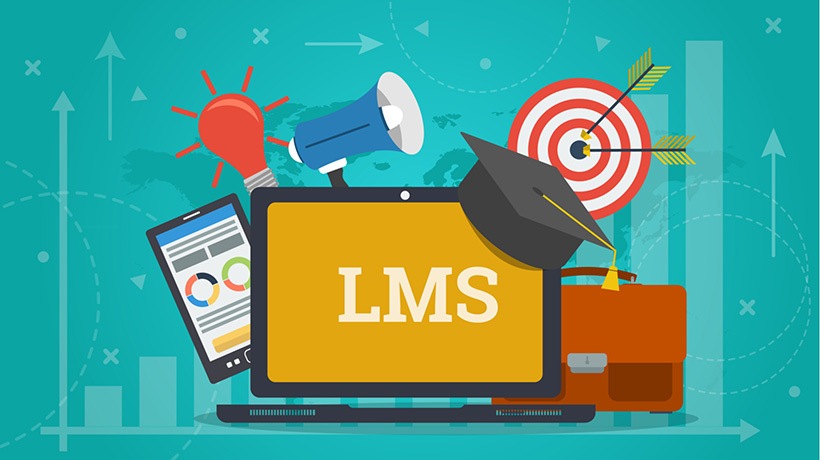Advantages Of Learning Management Systems
With the advancement in information technology, an integrated system was developed called a Learning Management System or LMS, which can take care of all the aspects of learning management. So, what exactly is an LMS?
An LMS is software that helps with administering, documenting, tracking, reporting and delivering educational courses and training programs. An LMS is hosted on a server and employs a database to store, deliver and manage all types of content, including video, courses, and documents. An LMS also manages student enrollment, course completion status, grading and assessment, communication, etc.
An LMS lets you create eLearning content (lessons), organize it into courses, deliver the content (either internally to your business or to a wider internet audience), enroll students to said courses, and, finally, monitor and assess their performance (attendance, grades, etc.).
What Are The Common LMSs Available?
There are many free as well as paid LMSs available. The most popular free LMS is Moodle, which is popular among educational institutions. Other popular LMSs include SAP Litmos, SumTotal, Adobe Captivate Prime, Docebo, LearnUpon LMS, and many more. There are many LMS service providers who offer various service options ranging from customization to maintenance and administration.
How To Implement And Access An LMS?
To implement an LMS for your organization, all you need is a web server space enabled with a database system. LMS experts opine that maintaining an LMS is easier than maintaining a website. If you want, you can utilize services of professional LMS providers, and you can even go for a cloud-based LMS to get a robust, scalable system without investing in IT infrastructure.
Accessing an LMS is just like accessing any website. Each LMS enables users to log in. Users are tagged per role such as student, teacher, administrator, etc. Users get access as per defined role. For example, a user with student login credentials will not be able to modify course content, however, a user with teacher login credentials can modify course content.
Features Of An LMS
All modern LMSs are loaded with many features. Some of the common features are:
- Course content authoring and upload
An LMS lets you author course content and upload course content in a wide variety of formats including audio, video, multimedia, documents, etc. - User and course management
An LMS offers user management and course management. User enrollment, tagging, course administration, order management, pre-registration and assigning courses can be done semi-automatically. - Communication management
An LMS can handle all course communications and notifications to concerned users. For example, an LMS can automatically send a notification to all enrolled users when a new assignment is uploaded by the teacher. There is no need to copy and paste contact data or switch between two digital services. - Report management
An LMS can generate a wide variety of reports, including student progress, score, student engagement, etc. The data can be utilized to gain valuable insight into the effectiveness of the course content. - Assessment creation and management
Assessments are a key part of any course. An LMS makes it easy to create and manage these assessments, both system evaluated and tutor evaluated. You can get a result in a single click for all students.
Benefits Of An LMS
- Saving time and money
Once set up, an LMS can store content which can be reused many times, thereby saving time and money. It frees up the teacher’s time in repetitive tasks and evaluations, thus giving more value to the teachers’ time. - Efficient management
An LMS allows effective, complete overall control of the administration, automatization, and communication with users, teachers, and trainers, and of course content management. - Easy access to information
An LMS hosts all of the information in a structured and organized way in the same place, making it accessible to all users. It can integrate digital libraries. All courses, learning calendars, multimedia content, forums, and evaluations are accessible with just one click. - Personalization
An LMS allows a great level of personalization in terms of look and feel, content, and communication as per the need of the organization and learners. - Advanced reporting
An LMS allows you to create, personalize and download detailed reports outlining the progress of learners, groups, completion of work, time taken, etc. This allows for easy evaluation of their progress either as a group or individually. - Improved communication and collaboration
An LMS with integrated communication and collaboration tools facilitates enhanced communication and collaboration between people, its students, teachers or administrators, and employees. It fosters social learning and improved course effectiveness.
Conclusion
Any educational institute or organization wishing to impart effective education to its employees must consider having an LMS to maximize the effectiveness of its training programs. Today, LMSs have become a basic necessity for the efficient and effective management of learning.
